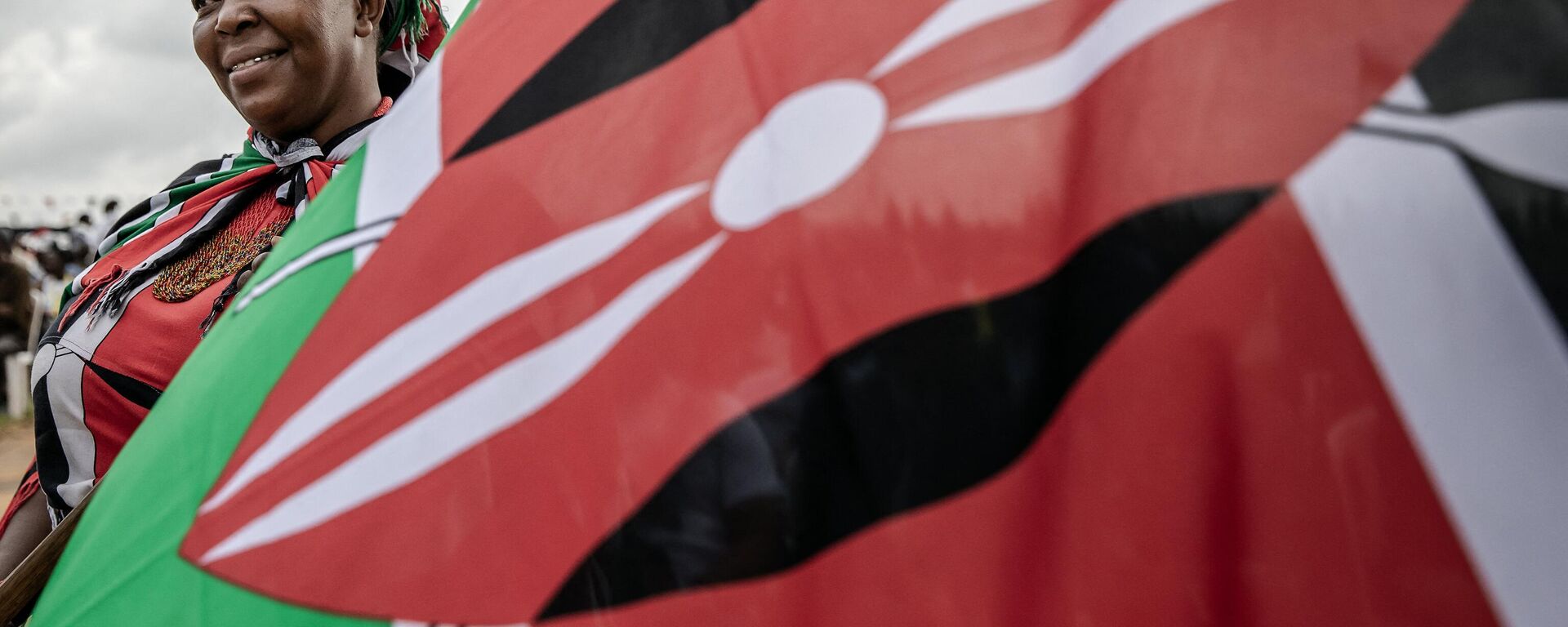https://en.sputniknews.africa/20240721/top-10-african-countries-with-the-most-internet-users-in-2024-1067576730.html
Top 10 African Countries With the Most Internet Users in 2024
Top 10 African Countries With the Most Internet Users in 2024
Sputnik Africa
The ranking is based on the data from Statista, a comprehensive online statistics portal that provides users with access to an extensive collection of data and... 21.07.2024, Sputnik Africa
2024-07-21T12:03+0200
2024-07-21T12:03+0200
2024-07-22T16:52+0200
nigeria
egypt
south africa
morocco
algeria
democratic republic of the congo (drc)
ghana
ethiopia
kenya
tanzania
https://cdn1.img.sputniknews.africa/img/104357/37/1043573707_174:0:3600:1927_1920x0_80_0_0_60a59d9d96b1b5a1daefb914b9a67e1c.jpg
The global number of internet users continues to rise, thanks to the growing accessibility of affordable devices, better connectivity, and the spread of digital services.Africa, despite facing numerous challenges, is also experiencing this upward trend. Although internet usage on the continent remains lower compared to other regions, notable progress has been made in recent years.This advancement is due to multiple factors, such as investments in infrastructure, the expansion of mobile networks, and initiatives aimed at enhancing digital literacy.Here is a look at the ten African countries leading in internet usage in 2024 by Statista:The list is completed by Benin (4.69 million, or 33.3% of the population), Burkina Faso (4.69 million, or 19.5% of the population), Rwanda (4.91 million, or 35.42% of the population), Zimbabwe (5.48 million, or 33.2% of the population), and Libya (6.13 million, or 88.7% of the population).In its report, Statista also noted that the majority of web traffic in leading digital markets in Africa originated from mobile devices. For example, in Nigeria, one of the countries with the largest number of internet users worldwide, 86.2% of web traffic was generated via smartphones and roughly 13.3% via PC devices. This is partly because mobile connections are much cheaper and do not require the infrastructure needed for traditional desktop PCs with fixed-line internet connections.Furthermore, the projected trend for Africa indicates a consistent rise in internet users from 2024 to 2029, with a collective addition of 337.3 million users (equivalent to a growth of 51.79%), according to Statista. Following 15 successive years of growth, the user count is anticipated to reach a record high of 1.1 billion by 2029. Additionally, the online penetration rate on the continent was 43%, which is below the global average of around 68%.* Here and below, calculations are based on the country's estimated population in 2024 from Statista, except for Benin, whose population data were taken from the World Population Review.
https://en.sputniknews.africa/20240708/kenya-aims-for-digital-transformation-80-of-public-services-to-go-online-1067421234.html
nigeria
egypt
south africa
morocco
algeria
democratic republic of the congo (drc)
ghana
ethiopia
kenya
tanzania
west africa
east africa
north africa
southern africa
central africa
benin
burkina faso
rwanda
libya
zimbabwe
Sputnik Africa
feedback@sputniknews.com
+74956456601
MIA „Rossiya Segodnya“
2024
Christina Glazkova
https://cdn1.img.sputniknews.africa/img/07e7/0b/07/1063380906_0:0:673:674_100x100_80_0_0_79628b4d0cd9f29291a57aa13bbf9e7a.jpg
Christina Glazkova
https://cdn1.img.sputniknews.africa/img/07e7/0b/07/1063380906_0:0:673:674_100x100_80_0_0_79628b4d0cd9f29291a57aa13bbf9e7a.jpg
News
en_EN
Sputnik Africa
feedback@sputniknews.com
+74956456601
MIA „Rossiya Segodnya“
Sputnik Africa
feedback@sputniknews.com
+74956456601
MIA „Rossiya Segodnya“
Christina Glazkova
https://cdn1.img.sputniknews.africa/img/07e7/0b/07/1063380906_0:0:673:674_100x100_80_0_0_79628b4d0cd9f29291a57aa13bbf9e7a.jpg
nigeria, egypt, south africa, morocco, algeria, democratic republic of the congo (drc), ghana, ethiopia, kenya, tanzania, internet, west africa, east africa, north africa, southern africa, central africa, technology, benin, burkina faso, rwanda, libya, zimbabwe
nigeria, egypt, south africa, morocco, algeria, democratic republic of the congo (drc), ghana, ethiopia, kenya, tanzania, internet, west africa, east africa, north africa, southern africa, central africa, technology, benin, burkina faso, rwanda, libya, zimbabwe
Top 10 African Countries With the Most Internet Users in 2024
12:03 21.07.2024 (Updated: 16:52 22.07.2024) Christina Glazkova
Writer / Editor
The ranking is based on the data from Statista, a comprehensive online statistics portal that provides users with access to an extensive collection of data and statistics covering over 80,000 topics from more than 22,500 sources.
The global number of internet users continues to rise, thanks to the growing accessibility of affordable devices, better connectivity, and the spread of
digital services.Africa, despite facing numerous
challenges, is also experiencing this upward trend. Although internet usage on the continent remains lower compared to other regions, notable progress has been made in recent years.
This advancement is due to multiple factors, such as
investments in infrastructure, the expansion of mobile networks, and initiatives aimed at enhancing digital literacy.
Here is a look at the ten African countries leading in internet usage in 2024 by Statista:
1.
Nigeria (103 million, or 45.2% of the population*);
2.
️Egypt (82 million, or 76% of the population);
3.
️South Africa (45 million, or 72.6% of the population);
4.
️Morocco (34 million, or 92.2% of the population);
5.
️Algeria (33 million, or 71.8% of the population);
6.
️DR Congo (28 million, or
27.4% of the population);
7.
️Ghana (24 million, or 71.3% of the population);
8.
️Ethiopia (24 million, or
21.1% of the population);
9.
️Kenya (22 million, or 43.3% of the population);
10.
️Tanzania (21 million, or
33.4% of the population).
The list is completed by Benin (4.69 million, or 33.3% of the population), Burkina Faso (4.69 million, or 19.5% of the population), Rwanda (4.91 million, or 35.42% of the population), Zimbabwe (5.48 million, or 33.2% of the population), and Libya (6.13 million, or 88.7% of the population).
As it can be seen, more internet users do not always mean more network coverage in a country. For example, the estimated population of Ethiopia exceeds the population of Libya by 15.5 times, but in the East African country, only 21% have access to the internet (almost the same as in Burkina Faso, whose population is almost 4.5 times smaller compared to Ethiopia), while in the North African country, almost 90% of the population has internet access.
In its report, Statista also noted that the majority of web traffic in leading digital markets in Africa originated from mobile devices. For example, in Nigeria, one of the countries with the largest number of internet users worldwide, 86.2% of web traffic was generated via smartphones and roughly 13.3% via PC devices. This is partly because mobile connections are much cheaper and do not require the infrastructure needed for traditional desktop PCs with fixed-line internet connections.
Furthermore, the projected trend for Africa indicates a consistent rise in internet users from 2024 to 2029, with a collective addition of 337.3 million users (equivalent to a growth of 51.79%), according to Statista. Following 15 successive years of growth, the user count is anticipated to reach a record high of 1.1 billion by 2029. Additionally, the online penetration rate on the continent was 43%, which is below the global average of around 68%.
* Here and below, calculations are based on the country's estimated population in 2024 from Statista, except for Benin, whose population data were taken from the World Population Review.



